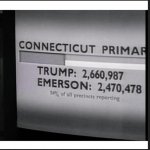Deterrence theory (*fair use)
From Wikipedia, the free encyclopedia
Jump to: navigation, search
This article is about deterrent theories of war and nuclear weapons. For legal theory of justice, see Deterrence (legal).
Deterrence theory gained increased prominence as a military strategy during the Cold War with regard to the use of nuclear weapons. It took on a unique connotation during this time as an inferior nuclear force, by virtue of its extreme destructive power, could deter a more powerful adversary, provided that this force could be protected against destruction by a surprise attack. Deterrence is a strategy intended to dissuade an adversary from taking an action not yet started, or to prevent them from doing something that another state desires. A credible nuclear deterrent, Bernard Brodie wrote in 1959, must be always at the ready, yet never used.[1][a]
In Thomas Schelling's (1966) classic work on deterrence, the concept that military strategy can no longer be defined as the science of military victory is presented. Instead, it is argued that military strategy was now equally, if not more, the art of coercion, of intimidation and deterrence.[2] Schelling says the capacity to harm another state is now used as a motivating factor for other states to avoid it and influence another state's behavior. To be coercive or deter another state, violence must be anticipated and avoidable by accommodation. It can therefore be summarized that the use of the power to hurt as bargaining power is the foundation of deterrence theory, and is most successful when it is held in reserve.[2]
In 2004 Frank C. Zagare made the case that deterrence theory is logically inconsistent, not empirically accurate, and that it is deficient as a theory. In place of classical deterrence, rational choice scholars have argued for perfect deterrence, which assumes that states may vary in their internal characteristics and especially in the credibility of their threats of retaliation.[3]
In a January 2007 article in the Wall Street Journal, veteran cold-war policy makers Henry Kissinger, Bill Perry, George Shultz, and Sam Nunn reversed their previous position and asserted that far from making the world safer, nuclear weapons had become a source of extreme risk.[4] "Senior European statesmen and women" called for further action in 2010 in addressing problems of nuclear weapons proliferation. They said: "Nuclear deterrence is a far less persuasive strategic response to a world of potential regional nuclear arms races and nuclear terrorism than it was to the cold war".[5]
The concept of deterrence[edit]
The use of military threats as a means to deter international crises and war has been a central topic of international security research for decades. Research has predominantly focused on the theory of rational deterrence to analyze the conditions under which conventional deterrence is likely to succeed or fail. Alternative theories however have challenged the rational deterrence theory and have focused on organizational theory and cognitive psychology.
The concept of deterrence can be defined as the use of threats by one party to convince another party to refrain from initiating some course of action.[6] A threat serves as a deterrent to the extent that it convinces its target not to carry out the intended action because of the costs and losses that target would incur. In international security, a policy of deterrence generally refers to threats of military retaliation directed by the leaders of one state to the leaders of another in an attempt to prevent the other state from resorting to the threat of use of military force in pursuit of its foreign policy goals.
As outlined by Huth,[6] a policy of deterrence can fit into two broad categories being (i) preventing an armed attack against a state’s own territory (known as direct deterrence); or (ii) preventing an armed attack against another state (known as extended deterrence). Situations of direct deterrence often occur when there is a territorial dispute between neighboring states in which major powers like the United States do not directly intervene. On the other hand, situations of extended deterrence often occur when a great power becomes involved. It is the latter that has generated the majority of interest in academic literature. Building on these two broad categories, Huth goes on to outline that deterrence policies may be implemented in response to a pressing short-term threat (known as immediate deterrence) or as strategy to prevent a military conflict or short term threat from arising (known as general deterrence).
A successful deterrence policy must be considered in not only military terms, but also in political terms. In military terms, deterrence success refers to preventing state leaders from issuing military threats and actions that escalate peacetime diplomatic and military cooperation into a crisis or militarized confrontation which threatens armed conflict and possibly war. The prevention of crises of wars however is not the only aim of deterrence. In addition, defending states must be able to resist the political and military demands of a potential attacking nation. If armed conflict is avoided at the price of diplomatic concessions to the maximum demands of the potential attacking nation under the threat of war, then it cannot be claimed that deterrence has succeeded.
Furthermore, as Jentleson et al.[7] argue, two key sets of factors for successful deterrence are important being (i) a defending state strategy that firstly balances credible coercion and deft diplomacy consistent with the three criteria of proportionality, reciprocity, and coercive credibility, and secondly minimizes international and domestic constraints; and (ii) the extent of an attacking state's vulnerability as shaped by its domestic political and economic conditions. In broad terms, a state wishing to implement a strategy of deterrence is most likely to succeed if the costs of non-compliance it can impose on, and the benefits of compliance it can offer to, another state are greater than the benefits of noncompliance and the costs of compliance.
Deterrence theory holds that nuclear weapons are intended to deter other states from attacking with their nuclear weapons, through the promise of retaliation and possibly mutually assured destruction (MAD). Nuclear deterrence can also be applied to an attack by conventional forces; for example, the doctrine of massive retaliation threatened to launch US nuclear weapons in response to Soviet attacks.
A successful nuclear deterrent requires that a country preserve its ability to retaliate, either by responding before its own weapons are destroyed or by ensuring a second strike capability. A nuclear deterrent is sometimes composed of a nuclear triad, as in the case of the nuclear weapons owned by the United States, Russia and the People's Republic of China. Other countries, such as the United Kingdom and France, have only sea- and air-based nuclear weapons.
Proportionality[edit]
Jentleson et al. provide further detail in relation to these factors.[7] Firstly, proportionality refers to the relationship between the defending state's scope and nature of the objectives being pursued, and the instruments available for use to pursue this. The more the defending state demands of another state, the higher that state's costs of compliance and the greater need for the defending state’s strategy to increase the costs of noncompliance and the benefits of compliance. This is a challenge, as deterrence is, by definition, a strategy of limited means. George (1991) goes on to explain that deterrence may, but is not required to, go beyond threats to the actual use of military force; but if force is actually used, it must be limited and fall short of full-scale use or war otherwise it fails.[8] The main source of disproportionality is an objective that goes beyond policy change to regime change. This has been seen in the cases of Libya, Iraq, and North Korea where defending states have sought to change the leadership of a state in addition to policy changes relating primarily to their nuclear weapons programs.
Continued here:
https://en.wikipedia.org/wiki/Deterrence_theory





